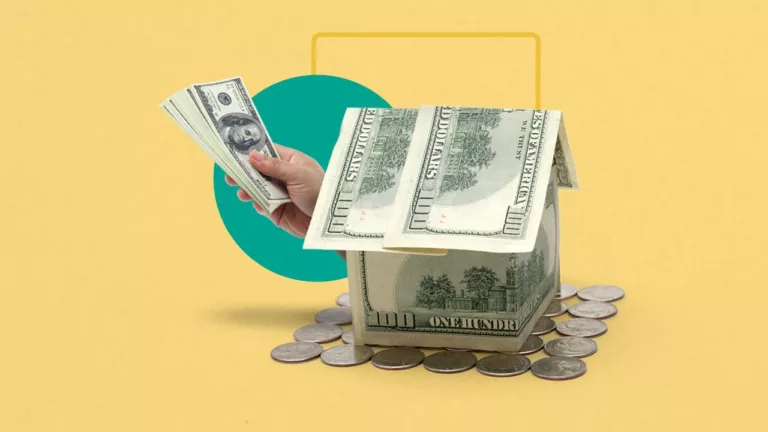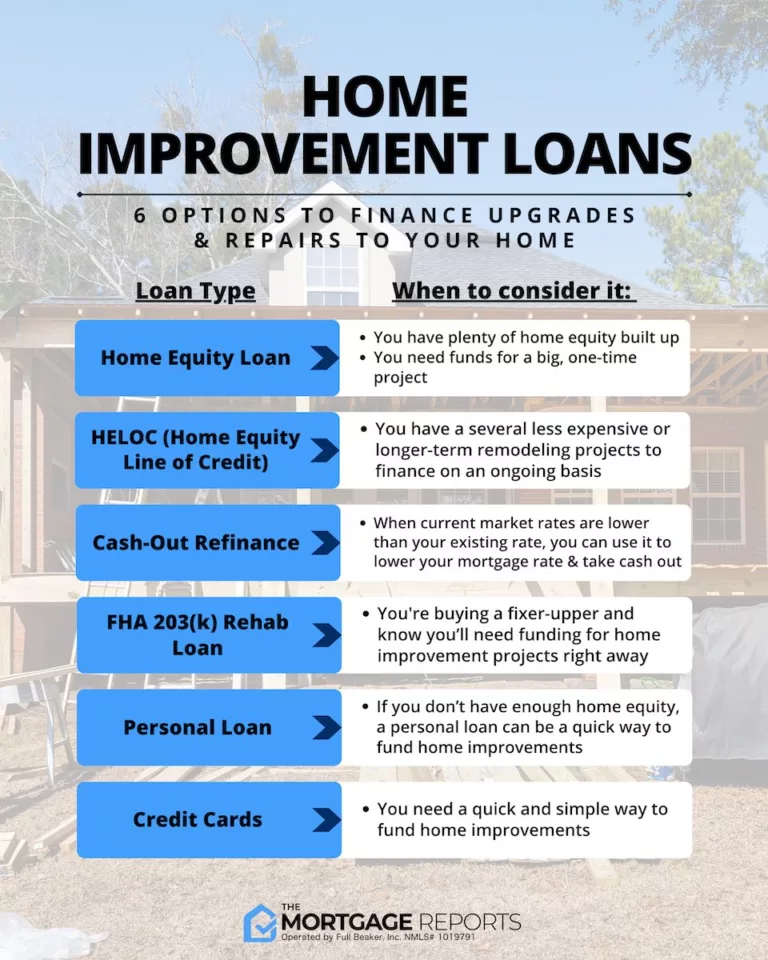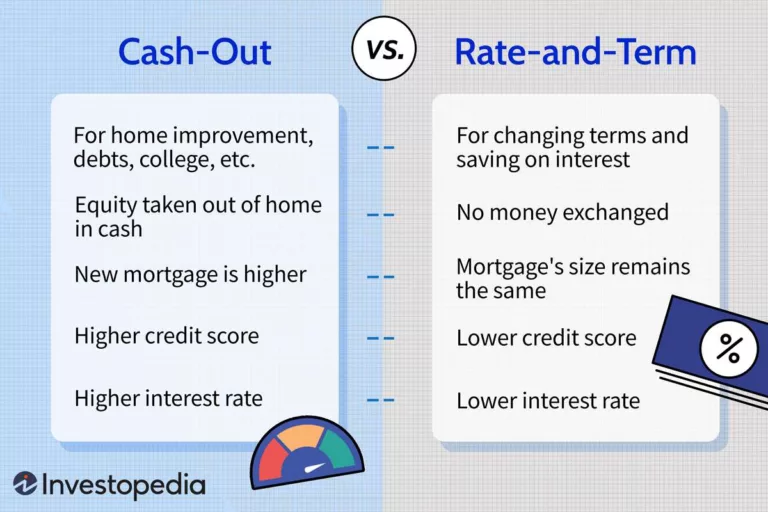What are Mortgage Backed Securities Quizlet : Unraveling the Enigma
Mortgage Backed Securities (MBS) on Quizlet are financial instruments that are backed by a pool of mortgage loans. These securities are sold to investors, who receive payments based on the principal and interest collected from the underlying mortgage loans.
Mortgage Backed Securities (MBS) have become increasingly popular in the world of finance. These financial instruments are backed by a pool of mortgage loans, offering investors the opportunity to earn returns based on the interest and principal payments from the mortgages.
MBS are often bundled and sold to investors as a way to increase liquidity for lenders and provide an attractive investment option. Understanding MBS and their role in the market is crucial for investors, as the risks associated with these securities played a significant role in the 2008 financial crisis. We will explore the concept of Mortgage Backed Securities on Quizlet, shedding light on their structure, benefits, and potential risks for investors.
Introduction To Mortgage Backed Securities
Mortgage Backed Securities (MBS) are essential financial instruments that have revolutionized the housing market. These securities are created by pooling together thousands of residential mortgages, converting them into investable assets. As a result, MBS offer investors the opportunity to earn income by purchasing a share of the cash flows generated by these mortgage loans.
Definition Of Mortgage Backed Securities
Mortgage Backed Securities, commonly known as MBS, can be defined as investment products that are created through the securitization of residential mortgage loans. In simpler terms, MBS are financial instruments that enable investors to indirectly invest in residential mortgages by purchasing a fraction of the mortgage-backed securities.
Historical Background
The concept of Mortgage Backed Securities emerged in the United States in the 1970s when financial institutions sought new ways to provide liquidity to the housing market. The creation of MBS aimed to address a fundamental issue: banks and mortgage lenders were unable to originate new loans due to the lack of funds necessary to lend to homebuyers.
During this time, the Government National Mortgage Association, commonly known as Ginnie Mae, was tasked with creating securities backed by mortgages insured or guaranteed by the Federal Housing Administration (FHA) and the Department of Veterans Affairs (VA). This initiative helped increase the flow of funds into the housing market, making mortgages more accessible to a broader range of prospective homebuyers.
Following Ginnie Mae’s success, Fannie Mae (Federal National Mortgage Association) and Freddie Mac (Federal Home Loan Mortgage Corporation) were established. These government-sponsored entities were further instrumental in expanding the availability of mortgage loans through the securitization process. Over time, private financial institutions also became actively involved in issuing and trading MBS.
Today, Mortgage Backed Securities play a crucial role in the global financial system, providing individual investors, institutional investors, and financial institutions with reliable opportunities to invest in the real estate market. By understanding the concept and history of MBS, investors can make informed decisions when considering these investment vehicles.

Credit: fastercapital.com
Components Of Mortgage Backed Securities
Mortgage Backed Securities on Quizlet are financial instruments that derive their value from a pool of mortgages. These securities are made up of different components such as mortgage loans, pass-through certificates, and collateralized mortgage obligations. They provide investors with an opportunity to invest in the real estate market indirectly.
Mortgage Loans
Mortgage loans are the foundation of mortgage-backed securities (MBS). A mortgage loan is a loan taken by an individual to purchase a property or refinance an existing property. These loans are typically provided by banks, mortgage lenders, or financial institutions. The borrower commits to repay the loan over a specified period of time, generally ranging from 15 to 30 years.Securitization Process
The securitization process involves bundling a pool of mortgage loans together to create mortgage-backed securities. This process allows lenders to transfer the risk of these loans to investors, while generating liquidity for future mortgage originations. It begins with the aggregation of similar mortgage loans, such as fixed-rate or adjustable-rate mortgages, conforming to certain standards set by government agencies. Once the pool of loans is aggregated, they are packaged into a trust, typically referred to as a special purpose vehicle (SPV) or a special purpose entity (SPE). The SPV issues mortgage-backed securities to investors, with the cash flow from the underlying mortgage loans serving as the source of payments to the investors. This securitization process provides diversification and liquidity to investors, while enabling lenders to free up capital for new lending opportunities.Tranches
Mortgage-backed securities are structured into various tranches, or classes, which represent different levels of risk and return for investors. Each tranche is like a slice of the overall pool of mortgage loans, and investors receive payments based on the tranche they have invested in. There are typically three main tranches: 1. Senior Tranche: This tranche has the highest priority and receives payments first. Investors in the senior tranche have lower risk because they are the first to be repaid from the cash flow generated by the underlying mortgage loans. 2. Mezzanine Tranche: This tranche falls in the middle of the risk-return spectrum. Investors in the mezzanine tranche take on a moderate level of risk and receive payments after the senior tranche has been repaid. 3. Equity Tranche: This tranche represents the riskiest investment and receives payments last. Investors in the equity tranche have the potential for higher returns but also face the highest level of risk as they are the last to be repaid.Credit Enhancement
Credit enhancement measures are put in place to protect investors and increase the creditworthiness of mortgage-backed securities. These measures aim to mitigate the risk of default and ensure timely payments to investors. Some common forms of credit enhancement include: – Overcollateralization: By including more mortgage loans in the pool than the value of the issued securities, overcollateralization provides an extra buffer for investors in case of loan defaults. – Reserve Funds: Reserve funds are set aside to cover any potential shortfalls in cash flows from the underlying mortgage loans. These funds act as a safety net, protecting investors from losses. – Insurance and Guarantees: Mortgage insurance or credit enhancement through government-backed guarantors can provide additional protection against default risk. – Structural Protections: Certain structural features, such as limitations on the number of delinquent loans or restrictions on the transfer of loans, can help improve the credit quality of the mortgage-backed securities. In conclusion, understanding the components of mortgage-backed securities is crucial for investors and industry professionals alike. Mortgage loans form the core of MBS, which are created through the securitization process. Tranches divide MBS into different risk and return levels, allowing investors to choose their desired investment profile. Lastly, credit enhancement measures ensure the security and creditworthiness of MBS, protecting investors from potential risks.Benefits And Risks Of Mortgage Backed Securities
Mortgage Backed Securities on Quizlet provide a range of benefits and risks. These securities offer investors a chance to diversify their portfolios and earn a steady stream of income. However, they also come with the potential for default and volatility in the housing market.
Investment Benefits
Mortgage Backed Securities (MBS) offer several investment benefits that investors find appealing. These benefits include:- Predictable Cash Flow: With MBS, investors receive regular income in the form of interest and principal payments made by homeowners. This predictable cash flow can provide stability to investors seeking reliable returns.
- Diversification: Investing in MBS enables investors to diversify their portfolios. MBS can be backed by mortgages on different types of properties and from various geographic regions, reducing the risk associated with investing in a single mortgage or real estate market.
- Liquidity: Mortgage Backed Securities are traded in the secondary market, providing investors with the ability to buy or sell their securities. This liquidity allows investors to access their funds when needed, providing flexibility in managing their portfolios.
- Yield Potential: MBS can offer attractive yields compared to other fixed-income securities. Investors can earn higher returns due to the additional risk they assume by investing in mortgage-backed assets.
- Government Guarantees: Certain MBS, such as those issued by government-sponsored entities like Fannie Mae and Freddie Mac, enjoy a level of government support. This guarantee can enhance the perceived creditworthiness of these securities, reducing the risk for investors.
Market Risks
While Mortgage Backed Securities offer benefits, there are also market risks associated with investing in them. These risks include:- Interest Rate Risk: Changes in interest rates can impact the value of MBS. When interest rates rise, the value of existing MBS may decrease because their fixed-rate mortgages become less attractive compared to newly issued higher-yielding securities. Conversely, when interest rates decline, MBS values may increase.
- Price Volatility: MBS prices can be volatile, influenced by factors such as economic conditions, housing market performance, and investor sentiment. Market conditions and investor demand for MBS can lead to significant price fluctuations, exposing investors to potential capital losses.
- Prepayment Risks: Prepayment risk arises when mortgage borrowers pay off their loans earlier than expected, which can reduce the expected duration of the MBS and affect the investor’s return. This risk is particularly relevant in periods of declining interest rates when homeowners refinance their mortgages.
Prepayment Risks
Prepayment risks are a specific subset of market risks associated with MBS. These risks stem from the potential for homeowners to repay their mortgages before the scheduled maturity, affecting investors’ returns. Prepayment risks include:- Refinancing: Homeowners may choose to refinance their mortgages when interest rates decrease, causing them to prepay their existing loans. As a result, investors may receive their principal earlier than expected, impacting the expected returns on their MBS investments.
- Mortgage Loan Defaults: In certain cases, homeowners may repay their mortgages due to default or foreclosure. These early repayments can have a negative effect on MBS investors, potentially leading to lower returns.
Credit Risks
Credit risks are an essential aspect of mortgage-backed securities. These risks are associated with the possibility of homeowners defaulting on their mortgage payments. Potential credit risks investors should be aware of include:- Default Probability: The risk that homeowners might be unable or unwilling to make their mortgage payments, leading to a loss of income for investors. This risk is typically assessed by evaluating the borrowers’ creditworthiness and the general economic conditions.
- Collateral Value: In the event of default, the value of the underlying property securing the mortgage affects the potential recovery for investors. If property values decline significantly, investors may face greater losses.
- Default Recovery: When a mortgage loan defaults, the recovery process can be complex and time-consuming. Investors may experience delays in receiving their principal and interest payments, leading to a temporary reduction in income.
Role Of Mortgage Backed Securities In The Financial Crisis
The role of Mortgage Backed Securities in the financial crisis refers to the impact these financial instruments had on the 2008 global economic meltdown. Understanding the causes, the impact on mortgage-backed securities, and the regulatory changes that followed the crisis is crucial to comprehending the full extent of this complex issue.
Causes Of The Financial Crisis
- The housing bubble: The rapid increase in housing prices led to an inflow of loans and a false sense of security in the lending industry.
- Subprime lending: Financial institutions approved mortgages for individuals with poor creditworthiness, leading to a surge in high-risk loans.
- Securitization: Mortgages were bundled together and transformed into mortgage-backed securities, which were then sold to investors.
- Rating agencies: These agencies gave high ratings to mortgage-backed securities, failing to accurately assess their underlying risk.
- Lax regulation: Regulators did not effectively monitor the mortgage and financial markets, allowing risky practices to go unchecked.
Impact On Mortgage Backed Securities
The collapse of the housing market and the subsequent increase in mortgage defaults had a profound impact on mortgage-backed securities. Here are some key points:
- Losses on mortgage-backed securities: Investors faced significant losses as the value of these securities plummeted due to the high number of mortgage defaults.
- Financial institution collapse: Many financial institutions that held large quantities of mortgage-backed securities experienced financial distress or even bankruptcy.
- Selling pressure: As investors rushed to offload their mortgage-backed securities, this further decreased their value and contributed to market volatility.
Regulatory Changes Post-crisis
The financial crisis prompted a series of regulatory reforms to prevent a similar event from occurring in the future. These changes included:
| Reform | Description |
|---|---|
| Dodd-Frank Act | This legislation aimed to enhance financial stability by imposing stricter regulations on banks and other financial institutions. |
| Increased capital requirements | Regulators required financial institutions to hold more capital to withstand potential losses, reducing their risk exposure. |
| Improved risk assessment | Rating agencies were required to enhance their evaluation methods to provide more accurate ratings for mortgage-backed securities. |
| Tighter mortgage lending standards | Stricter regulations were implemented to ensure that mortgage loans were only granted to borrowers with adequate income and creditworthiness. |
The role of mortgage-backed securities in the financial crisis was significant. Understanding the causes, impact, and regulatory changes following the crisis provides valuable insights into the intricacies of this pivotal event in global finance.
Current Trends And Future Outlook
Mortgage Backed Securities Quizlet provides insights into the current trends and future outlook of the market. These securities are investments backed by a pool of residential or commercial mortgages, offering potential returns to investors based on the performance of the underlying loans.
Stay informed with Mortgage Backed Securities Quizlet.
Recent Developments
In recent years, there have been significant developments in the world of mortgage-backed securities (MBS). These developments have been driven by changes in the economy, advancements in technology, and shifts in regulatory policies. Mortgage-backed securities have become more complex and diverse, offering investors a wider range of investment options and potential risks. Let’s take a closer look at some of the recent trends in this market. One important trend is the increased use of automated processes and data analytics in the securitization process. Mortgage lenders and investors are leveraging technology to streamline the origination, underwriting, and servicing of mortgage loans, resulting in faster and more efficient MBS transactions. This trend is expected to continue as technology continues to advance. Another significant development is the emergence of non-traditional mortgage lenders. These lenders, often referred to as fintech companies, use innovative approaches to evaluate creditworthiness and provide mortgage loans to borrowers who may not qualify for traditional bank loans. This has contributed to the growth of non-traditional MBS products, which offer investors exposure to a different segment of the mortgage market.Impact Of Covid-19
The COVID-19 pandemic has had a profound impact on the mortgage-backed securities market. As the pandemic caused economic uncertainty and job losses, the housing market was not immune to its effects. Many borrowers faced difficulties in making their mortgage payments, leading to higher delinquency and default rates. This, in turn, affected MBS investors who faced increased credit risk. The Federal Reserve’s response to the pandemic also had a significant impact on the mortgage-backed securities market. The central bank implemented various measures, including lowering interest rates and purchasing MBS, to support the economy and stabilize the mortgage market. These actions helped to mitigate some of the negative effects of the pandemic on the MBS market.Predictions For The Future
Looking ahead, several factors are expected to shape the future of mortgage-backed securities. One key factor is the interest rate environment. If interest rates rise, it could lead to higher mortgage rates, potentially impacting the demand for mortgage loans and the performance of MBS. On the other hand, if interest rates remain low, it may continue to stimulate the housing market and the MBS market. Additionally, regulatory changes and policies will play a crucial role in shaping the MBS market. Mortgage lending regulations and risk retention requirements have been subject to ongoing discussions and revisions. These changes will influence how mortgage-backed securities are structured and issued in the future. Lastly, the continued growth of the fintech industry and its impact on the mortgage market will be an area to watch. As technology continues to advance and fintech companies gain market share, it is expected that the landscape of mortgage lending and securitization will continue to evolve. In conclusion, the mortgage-backed securities market is dynamic and constantly evolving. Recent developments, such as the use of technology and the emergence of non-traditional lenders, have increased the complexity and diversity of MBS products. The COVID-19 pandemic has had a significant impact on the market, but measures taken by the Federal Reserve have helped stabilize it. Looking ahead, interest rates, regulatory changes, and the growth of the fintech industry will be key factors to watch in shaping the future of mortgage-backed securities.
Credit: iilss.net
Credit: transitapp.com
Frequently Asked Questions For What Are Mortgage Backed Securities Quizlet
What Is A Mortgage-backed Security?
A mortgage-backed security is a financial product that is backed by a pool of mortgages. Investors receive regular payments based on the principal and interest payments made by borrowers. It is a way for financial institutions to package and sell mortgage debt to investors.
What Is The Term Mortgage Related Security Refers To Quizlet?
A mortgage-related security refers to a financial product that is backed by a pool of mortgage loans. It allows investors to invest in the income generated by the underlying mortgages.
What Is The Most Common Type Of Mortgage-backed Security Quizlet?
The most common type of mortgage-backed security on Quizlet is a pass-through security. It allows investors to receive a share of the mortgage payments made by borrowers.
What Are Mortgage-backed Securities Called Now?
Mortgage-backed securities are now commonly referred to as MBS.
Conclusion
Mortgage-backed securities have revolutionized the investment world, offering a unique opportunity for investors to diversify their portfolios. Understanding the intricacies of MBS is crucial to making informed investment decisions. Quizlet provides an accessible platform to learn and test your knowledge about MBS, helping you navigate the complexities with ease.
So dive in and equip yourself with the necessary expertise to succeed in the world of mortgage-backed securities!



